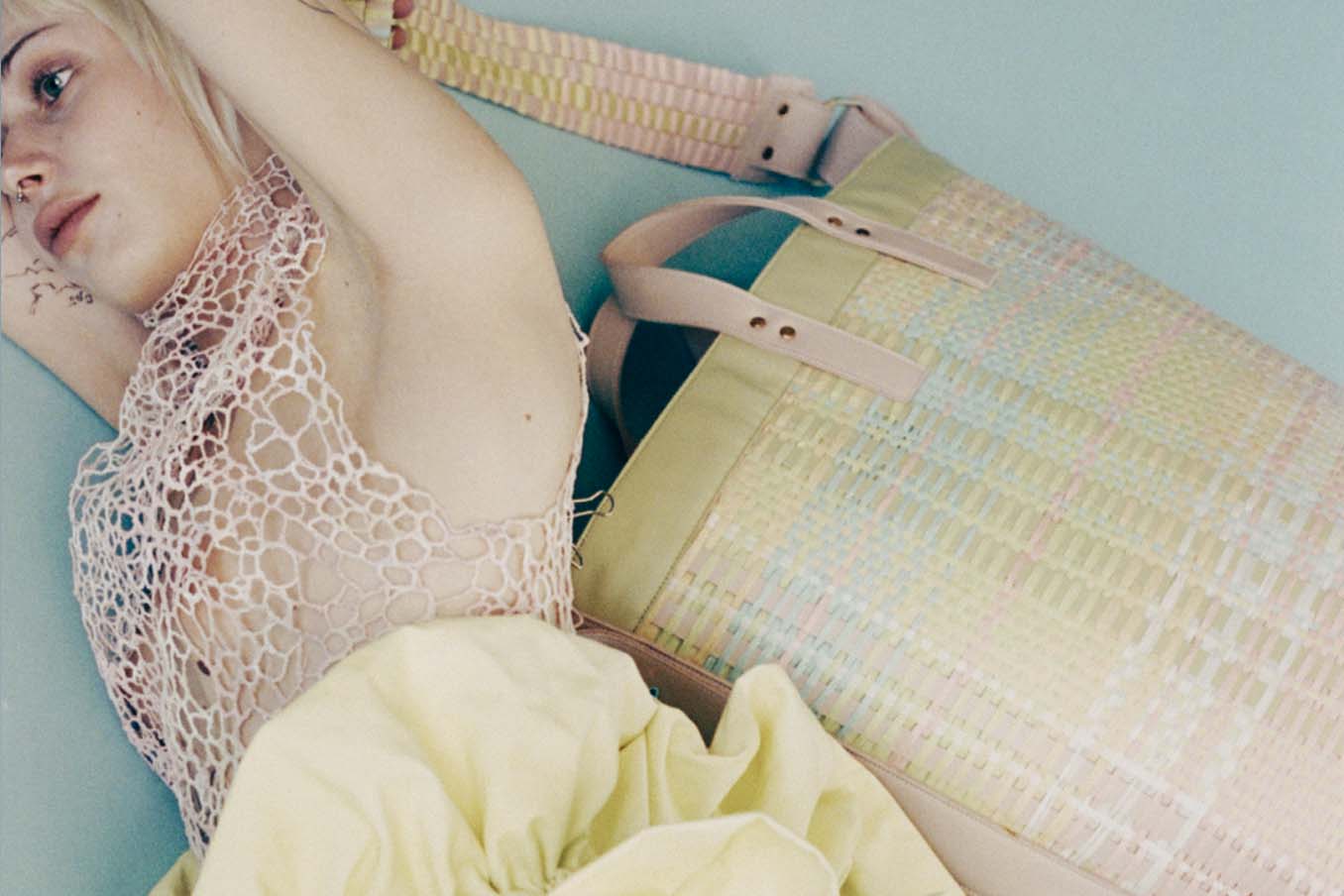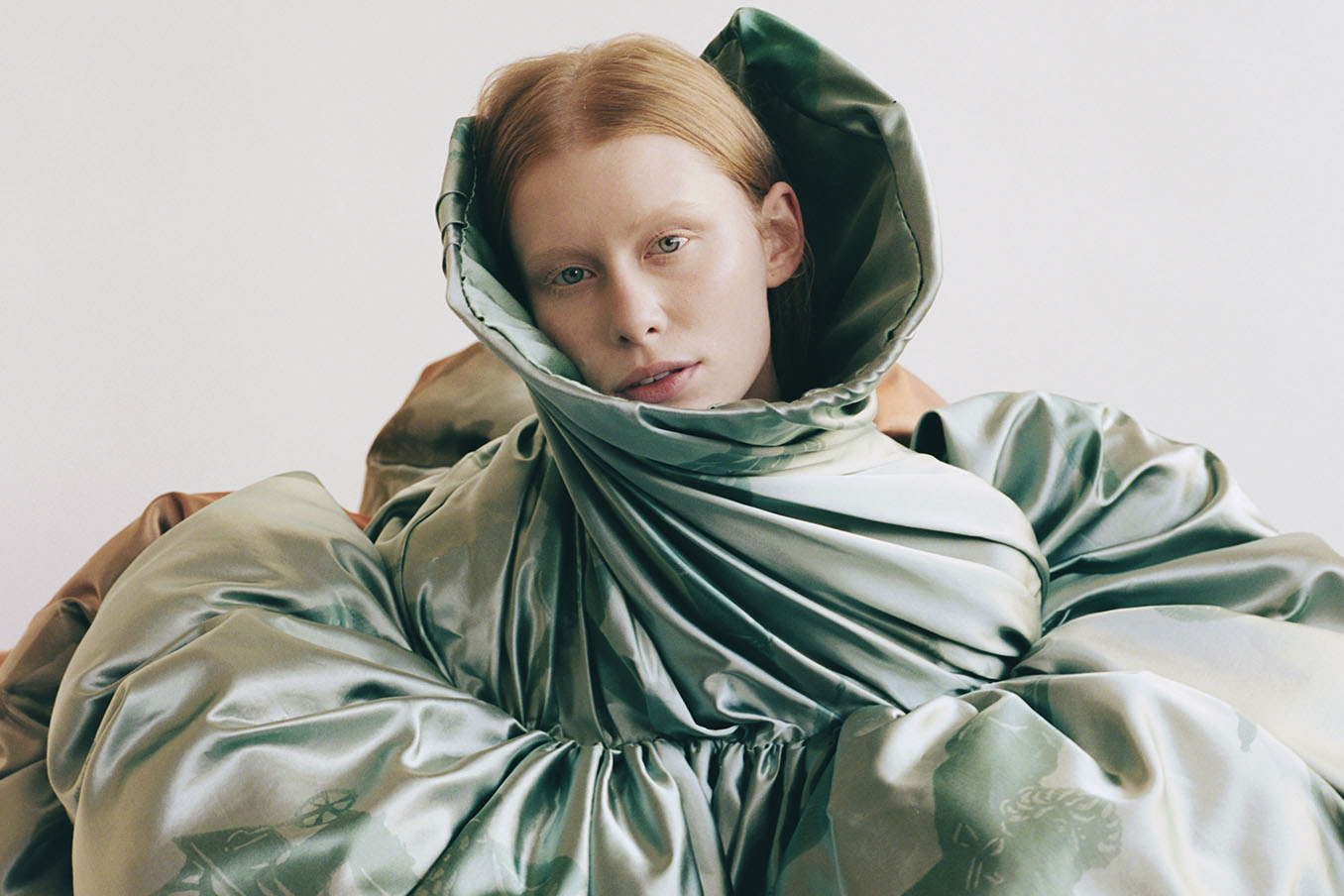Course
The Master in Textile Design aims to educate creative individuals who explore design by deeply investigating the sources, manufacturing processes, and construction techniques of fibers and fabrics. Students will engage in all steps of textile design and creation, from craft to science. Innovation and sustainability are embedded in the entire process in order for talent and technical skills to be developed.
Lecturers are chosen from diverse design practices and professionals will be invited to be visiting residents, inspiring and empowering the students’ professional growth. To explore textile design, students will delve into the origins of fabric. They will learn with a studio-based, hands-on approach, enriched with field trips and exhibition visits. All supported by critical theoretical knowledge of archaeology, anthropology and history. The program includes a final project and has a total of 1400 contact hours over two years.
You will have access to a fully equipped department building at Manifattura Campus, with looms, knitting machines, spinning tools, embroidery machines, and sewing machines. A wet room will be designed for dyeing and washing. Research can be conducted at the Polimoda Library at Villa Campus, which houses the most significant collection of fashion and related subject titles in Italy.
Open Day: Special session
Prospective students interested in this course are invited to attend a special, dedicated session during the Open Day on Friday, June 6th, 2025. This exclusive event will offer the opportunity to meet the course’s faculty members, gain deeper insight into the curriculum, ask questions about career paths in textile innovation, and experience firsthand what it means to study at Polimoda. It is a unique opportunity to understand how this newly launched program has been structured to address the evolving needs and future directions of the textile design industry.
Curriculum
This course is structured around four learning semesters.
- Fibers and Yarns: develop knowledge and gain insight into the practices leading to fibers, the crafting of yarns and the preparations for weaving.
- Fabric One: bring yarns into construction through weaving, knitting and crochet. Create an original personal archive as the basis of the work to be made in the second year.
- Fabric Two: design and develop a personal vision of cloth and clothes with studies of embellishments such as embroideries, patchworks, jacquard and printing. Develop a collection of textiles that reflects your unique vision for the final stage of your studies.
- Fashion: bring together all acquired knowledge and experiences for the creation of your final garments through introductory knowledge of fashion design, draping and patternmaking.
Careers
Based on individual character and acquired skills, you can become the next:
- Fabric Designer for the textile and fashion industry
- Fabric Researcher for a fashion brand
- Print or Embroidery Designer
- Fabric Craftsperson, working as an Independent Designer
- Fabric Buyer for volume or luxury fashion houses
- Fabric Innovator working on material innovation
- Fashion Sustainability Specialist and Consultant
Career services
The Career and Company Relations Office supports all students by creating a connection with the working world. It promotes educational collaboration with fashion companies via field trips, workshops and lectures. Our customized career services like CV help, career days, individual interviews and internship proposals help students access the job market.
Facilities
Polimoda hosts a range of world class facilities such as state of the art computer labs equipped with an array of 3D modelling and graphic programs, study areas for communal and independent study, two lecture halls, academic services, large professional workshops, tailoring studios and knitwear studios with technical professional equipment, photo studios, shop, and café.
Students have access to:
- Specialized machinery for sewing and all technical aspects of garment creation
- Advanced computer labs with 3D modeling software
- Material library
- Study areas and lecture halls
- Comprehensive fashion library
- Haberdashery and leather shop
Over its two sites, Polimoda exceeds 15,000 square meters of fashion education spaces, capable of accommodating over 2,000 students. The two campuses at Manifattura Tabacchi and Villa Favard, located a short distance from each other, form a single base for fashion education.
Manifattura Campus
Manifattura Campus redefines the standards of fashion education: modern and multifunctional spaces host classrooms and technologically advanced workshops designed to faithfully reflect the industry’s environment and equipment. Spanning over 10,000 square meters, the campus includes numerous labs for apparel design and manufacturing, a new wing dedicated to footwear, accessories, and leatherworking, an entire floor devoted to knitwear and textile research, as well as six photography studios of various sizes. Drawing spaces, theoretical classrooms, and computer labs with cutting-edge design and publishing software complete the facility. Two shops providing tailoring and leatherworking supplies, along with an archive of fabrics and leathers, ensure constantly updated resources.
Photo Studios
Manifattura campus includes six photography studios of various sizes. This is where photoshoot, videos and interviews are all carried out for academic and commercial outcomes. These photo studios are available to all students either through organized classes and lessons or through individual booking for student projects.
Villa Campus
Villa Campus, housed in the historic Villa Favard, serves as Polimoda’s headquarters and heart of fashion business education. Home to programs in marketing, communication, merchandising, retail, product management, and sustainable fashion, this elegant setting combines educational excellence with essential student services. From student orientation to career development, corporate relations to academic support, Villa Campus nurtures both professional growth and creative dialogue in a historic setting that bridges fashion’s past and future.
Beyond academics, Villa Favard stands as Florence’s premier fashion culture destination. The campus hosts international industry leaders and cultural events, creating a dynamic space where fashion education meets real-world experience.
Library
For textile design students, the extensive library resources are a portal to subjects around their study like sociology, historical dress, film, photography, interiors and furniture, contemporary fashion, and art, providing a rich context for their studies.
Polimoda’s library is one of the largest fashion libraries in Europe. Located in Florence’s Villa Favard, Centro di Documentazione Matteo Lanzoni – Polimoda Library holds an extensive collection of fashion publications.
Since its establishment in 1986, the Polimoda Library has grown to become a hub of fashion knowledge. With over 29,000 volumes, including books on fashion history, design, textile technology, marketing, and economics, it caters to diverse interests. The library also features an array of fashion magazines, look-books, film resources and online materials. It is also a place for quiet, independent study.
Requirements
Basic requirements to apply:
- CV with motivation letter
- English language proficiency
- Bachelor’s degree or equivalent
- Portfolio including an overview of your previous work with samples and photos


